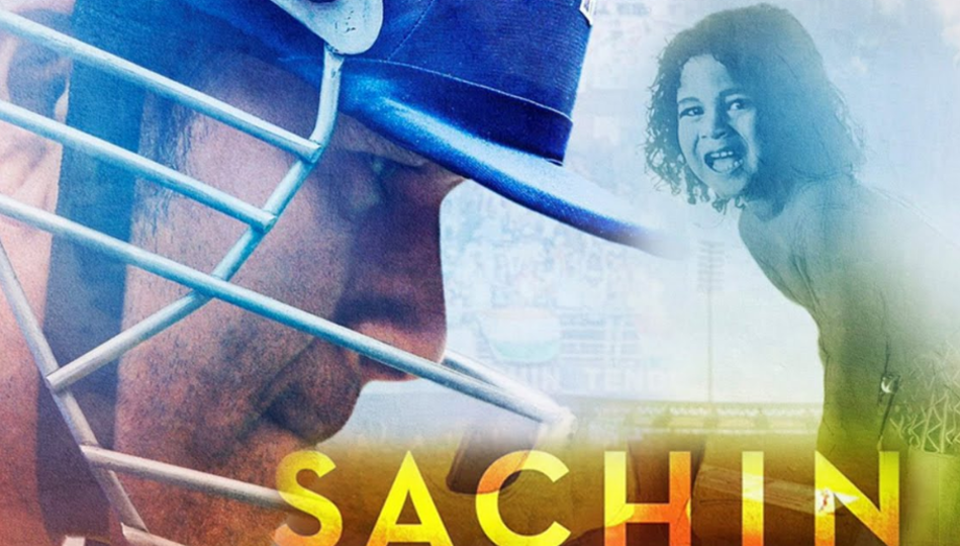Sachin - A Billion Dreams movie review: Only nostalgia is not enough

Sachin A Billion Dreams
Director: James Erskine
Rating: 2.5/5
You always know what you are in for in a biographical drama. You have seen or read about those amazing sports icons achieving against odds and with meagre means. You want to relive the nostalgia around them and if that comes with some untold stories, nothing could be better than that. On that account, Sachin A Billion Dreams offers a heavy dose of the glorious ’90s, an era in which the BCCI became the superpower of world cricket.
But it was also a time when the blot of match-fixing loomed large over Indian cricket. This period also witnessed the complicated relationship between Sachin and Azharuddin, players and advertisers, BCCI and the Doordarshan, etc.
Then arrived small town heroes led by Sourav Ganguly and then MS Dhoni. The Greg Chappell episode also happened. Does the Sachin biopic answer all these questions? Is it the most definitive documentation of a legendary life?
Be very clear about one thing: More than a definitive docu-drama, the film is a celebration of the master blaster’s really long career, his humility and rooted approach to life.
You get to see how the passion of cricket ignited Sachin Tendulkar, and how his brother Ajit Tendulkar realised his latent potential. His coach Ramakant Achrekar, facing Waqar Younis’s whispering bouncers for the first time, injuries, TV commercials come after that. But we have seen all this. No video footage can make us do something more than mere smiling in the dark when our national hero lifts the World Cup in 2011.
All this while, we have been asking the same question: What new things can you show about the person who has been under severe public scrutiny for so many years?
Director James Erskine realises it midway and shifts his focus to people closer to the God of Cricket. However, the only person whose character and traits come out is Sachin’s wife Anjali, who left a career in medicine to take care of family and home so that the gifted prodigy could concentrate on his ‘first love’ cricket.
Anjali appears to have given the no-nonsense support that Sachin needed. Her views on Sachin’s life beyond cricket are straight forward and closer to reality. The way she speaks about their son Arjun’s career in cricket shows how tough she is. Sadly, we don’t find Sachin’s other go-to people revealing their minds. They might be simple people who always adored Tendulkar, but we expected a bit more of inside takes on the cricketer.
Most of the film is about Sachin hitting bowlers out of the park or journalists talking about his glorious career. Well, for most of the fans and spectators, such things stopped holding much meaning since Sir Don Bradman endorsed Sachin’s way of playing the game.
Then there are other worthy topics like spot fixing and the dressing room environment after humiliating defeats. All he says about the match fixing saga is, “Kuch pata rahe toh bolun,” (What can I say without knowing about it). He might not have known about it, but he must have opinions about it.
Then the film also shies away from exploring Sachin’s relationship with his legendary contemporaries such as Rahul Dravid and Sourav Ganguly.
Erskine’s film deliberately tries to show that Tendulkar almost always operated in isolation, which might not be the right thing to do in the case of India’s most emphatic tournament wins including the 2011 World Cup.
One moment in the film when Sachin actually looks agitated—very unlike for him even in a film—is when he talks about being unceremoniously removed from captaincy in 1997. These are rare moments though.
Sachin A Billion Dreams does really well in bringing out the relationship between Sachin and his father and how he couldn’t deal with the loss for a long time and how he wanted to make him proud even after his death during the 1999 World Cup.
You will find players like Harbhajan Singh, Ravi Shashtri and M S Dhoni and Virat Kohli talking about Sachin Tendulkar, but it’s the real-life videos that add charm to this biopic. The one shot inside the Indian team’s dressing room after Sachin’s 35th century is remarkable and displays the delicate connection among players.
Sachin speaks about the Greg Chappell regime also, but doesn’t say anything more than what’s already known. He is always conscious.
Having said that, Sachin A Billion Dreams still works to a good extent, because, well, it’s Sachin Tendulkar. The man made us cry during his last speech at Wankhede Stadium.
I wiped my eyes, I won’t deny that, but that’s mostly because of the nostalgia attached to my teens. It’s reliving the Sachin magic, not a perfect docu-drama on him. Still enough to bring you to the theatres. We have been doing it for years. Maybe one more time.
Interact with Rohit Vats at Twitter/@nawabjha






